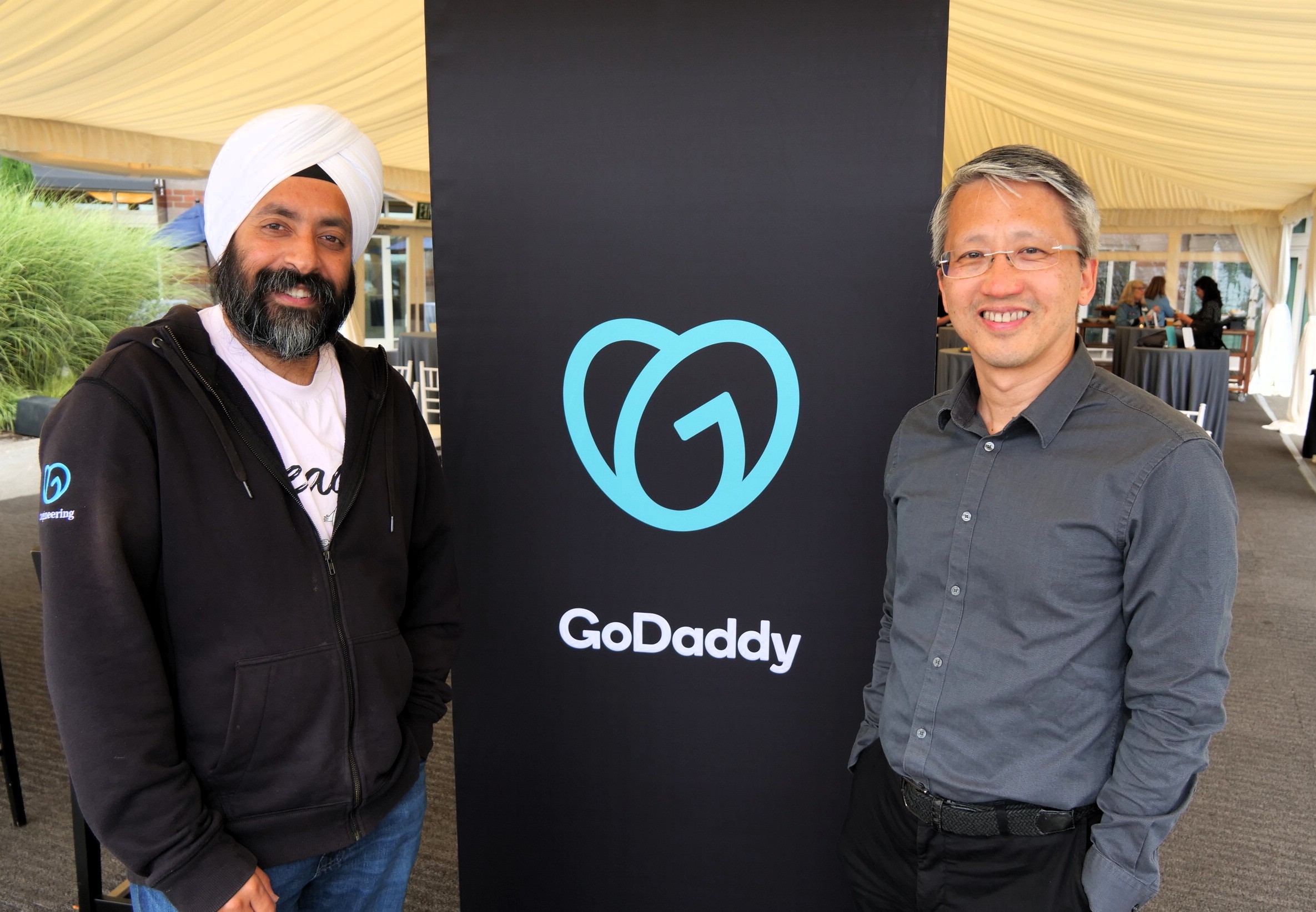
KIRKLAND, Wash. — GoDaddy remains the world’s largest domain registrar, by a significant margin. However, its operations have evolved dramatically since the era of its eccentric Super Bowl ads and wild-haired cartoon mascot.
One noticeable change is the company’s logo, now consisting of the letters “GO” shaped into a heart. Its contemporary advertisements focus on empowering small business owners, who make up the majority of its clientele.
But there’s a deeper transformation happening internally. In addition to its primary domain business, GoDaddy has launched technologies designed to help small businesses create websites, manage their online presence, sell products and services, and engage with customers across various platforms.
Like much of the tech industry, GoDaddy is venturing into artificial intelligence, but with its unique approach. Earlier this year, the company introduced its AI-powered GoDaddy Airo service, which aids customers in automatically generating websites, logos, emails, social media content, and more.
For the moment, GoDaddy CEO Aman Bhutani emphasizes that the company’s main objective with AI is to deliver value to customers. Unlike other tech giants looking to quickly convert AI buzz into financial returns, GoDaddy is not hastening this transition.

“There’s discovery, there’s engagement, and then there’s monetization,” Bhutani explained. “And our goal is to maximize those discovery and engagement metrics before focusing too much on monetization.”
This strategy aligns with the nature of GoDaddy’s customer base.
The majority of GoDaddy’s 21 million paying customers are small businesses, and 90% have fewer than 10 employees. Without large IT departments to adopt new technology, the typical GoDaddy customer spends around $210 annually, resulting in a low average revenue per user (ARPU) compared to enterprise software firms.
Adoption of GoDaddy’s new offerings is a critical gauge for the application of AI tools in everyday businesses. While some customers may initially hesitate, executives note that many recognize the value of AI once they use it.
“What they don’t realize is, once they start using the generative AI functionality, it actually saves them a lot of time,” said Roger Chen, GoDaddy’s chief operating officer. “Once they start using it, I don’t think they can stop.”
Since its launch earlier this year, over 1 million GoDaddy customers have discovered the AI tools, with more than half engaging with the features in some form, according to Bhutani.
Internally, GoDaddy leverages AI to streamline various processes, including automating performance review summaries and assisting customer support agents with an internal AI assistant called GABI. The company manages AI usage internally through a centralized API to maintain compliance and security.

These insights emerged from GeekWire’s extensive interview with Bhutani and Chen during a recent event in the Seattle area where GoDaddy executives met with some of their small-business customers.
GoDaddy’s financial performance has significantly improved over the past decade, transitioning from a $132 million operating loss in 2013 to a $547 million operating profit in 2023, driven by its foray into higher-margin products and services.
Revenue surged from $1.13 billion to $4.25 billion during the same period.
However, this growth has brought increased scrutiny. A recent antitrust lawsuit by DNS configuration company Entri accuses GoDaddy of exploiting its domain dominance to unfairly advantage its own competing product. GoDaddy declined to comment on the ongoing litigation.
Furthermore, GoDaddy’s growth has expanded its range of competitors. The company now lists Stripe, PayPal, TikTok, Facebook parent Meta, and WeChat among its official competitors, alongside domain-related companies like Cloudflare, Tucows, and Namecheap, and tech giants like Microsoft, Amazon, and Google.
Despite being officially headquartered in Tempe, Ariz., several top executives, including Bhutani, are based in the Seattle area at the Carillon Point complex in Kirkland. The complex is a short walk from the Woodmark Hotel, where the company recently hosted its customer event.

GoDaddy established the office in the Kirkland complex a decade ago, under the leadership of former Microsoft and Yahoo executive Blake Irving as GoDaddy’s CEO. About 430 of its more than 6,000 employees are now based in Washington state, many of them connected to the Kirkland office in a hybrid work setting.
The company allows individual teams to set their own remote work policies.
Bhutani, a longtime tech and business leader who joined GoDaddy as CEO five years ago from his role as Expedia president in Seattle, naturally chose to remain in the region. Chen is based in Singapore, Chief Marketing Officer Fara Howard is in Austin, and Chief Financial Officer Mark McCaffrey is in the Bay Area.
“I would say we work very effectively remotely,” Bhutani stated. “We don’t really feel the difference of being in different locations.”




